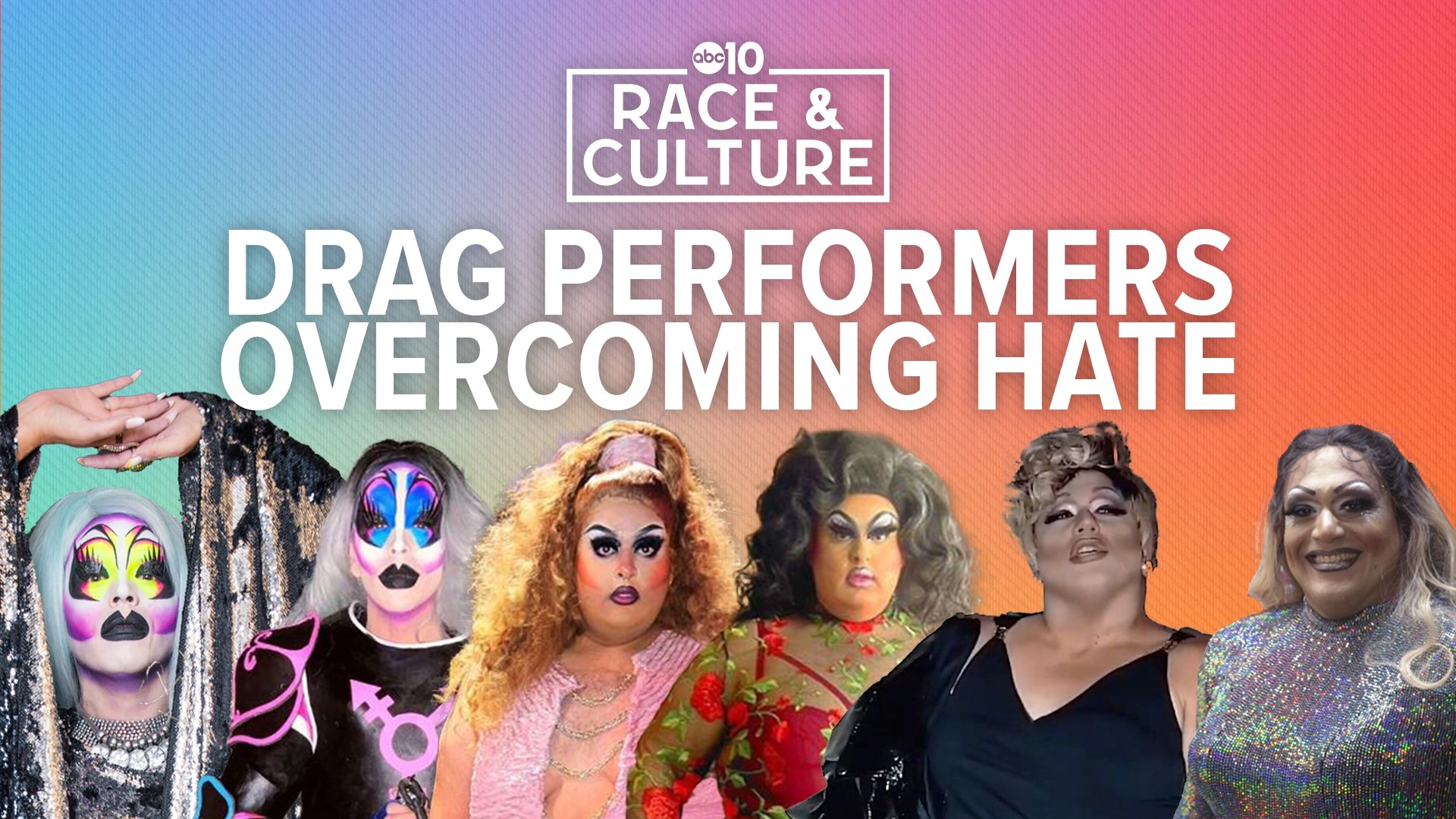SACRAMENTO, Calif. — For Izzy Cudmore, every day is a fight.
"We have to keep fighting to be seen as a person," said Cudmore.
He grew up in Fairfield in Solano county. There, he made a big decision. While in high school, he came out as a gay person.
"I didn't want to lose my family. I didn't want nobody to hate me," said Cudmore.
His worries faded away after talking to his grandma.
"The first thing (she) told me was, 'I love you,'" said Cudmore. "In the same night too, I told her that I want to do drag. I want to be a drag queen. Her first words (were), 'We got to buy you your first costume.'"
Eventually, the drag queen "Rose Rowzay" was born.
"For Rose, her home is Sacramento. This is where she started working. This is where she got her name out," said Cudmore.
Through drag, Rose fights for her rights — and others in the LGBTQ+ communities.
"No hate crime, no hate group, no anything can take away the love that I have for my art form, the love that I have for my community, nothing will ever take that away from me," said Cudmore. "So, that's what keeps me going."
According to GLAAD, the world’s largest LGBTQ media advocacy organization, there has been 161 protests and threats targeting LGBTQ people and drag events nationwide since early 2022.
A record number of bills have been introduced in state legislatures attacking the rights of LGBTQ+ people across the country this year.
The American Civil Liberties Union is tracking 491 bills, with 75 becoming law so far.
"Drag is a safe space for LGBTQ folks in our community," said Doctor Lady J, also known as "J. Davenport," a drag performer and drag historian from East Tennessee.
She explains the roots of drag and how the art form continues to overcome hate.
"It comes from an underground culture that starts with enslaved folks who are performing their own cross-dressed acts for one another, and for community purposes, that is then mimicked and mocked by minstrelsy," said Doctor Lady J.
Born into slavery in 1860, William Dorsey Swann was the first "Queen of drag" and "Queer activist."
"'Queen of drag' was really an idea about who William Dorsey Swann was in his community. So, the idea that he was a queen, was a leader," said Doctor Lady J. "He was someone who had a house, where he had many other people that did drag, largely formerly enslaved folks just like himself."
Swann would host "drag" parties at his home in Washington D.C.
"Those house balls, essentially these house parties were raided, and he was put in jail," said Doctor Lady J.
"What they would put them in jail for was, quote, 'running a disorderly house,' which is the same thing you'd say about a brothel -- even though this is not what was happening at William Dorsey Swann's parties," said Doctor Lady J.
Swann filed for a pardon from President Grover Cleveland in 1896 — it was denied. He was the first-known American to take legal action in the fight for gay rights.
"It shows that people who are doing drag, and especially Black folks who are formerly enslaved folks, are really the folks who are responsible for beginning the movement," said Doctor Lady J.
"What I know is that nothing has ever stopped us. Nothing ever will stop us. We are going to be who we are," said Taryn, a drag queen in Sacramento. "What's important about drag for me is what I can do with it."
For 20 years, Taryn has been a drag performer.
"I want to see people laugh, I want to see them smile, I want to perform and change their mood. I want to make them cry through performance," said Taryn.
At night, Taryn performs at bars and clubs in the greater Sacramento region. For her, it's about community.
"One of my favorite ballads to do is Whitney Houston's, 'I Have Nothing'," said Taryn.
In the day, Taryn turns into "Johnathan Cameron" who works with Sunburst Projects, a non-profit organization that serves the needs of the HIV and AIDS community through compassionate care and services.
"When I started doing drag, I found out I was HIV positive and drag allowed me to focus on what I can do to help educate and to help spread the word about HIV," said Taryn.
Outside of raising awareness, Taryn says she also uses drag to combat hate against the LGBTQ+ community.
"At some point, you have to just realize if they're not hurting you, why are you hurting them?" said Taryn. "We're a community that's different. We're diverse, and we as a community and even the surrounding areas should be proud of who we are."
(Editor's Note: Sabrina T. Sanchez contributed reporting.)
We want to hear from you!
The Race and Culture team's mission is to serve our diverse communities through authentic representation, community engagement and equitable reporting.
Accomplishing our goals of inclusive reporting requires hearing from you. Is there a person or place that you want us to highlight? Email us at raceandculture@abc10.com or fill out the form below.

